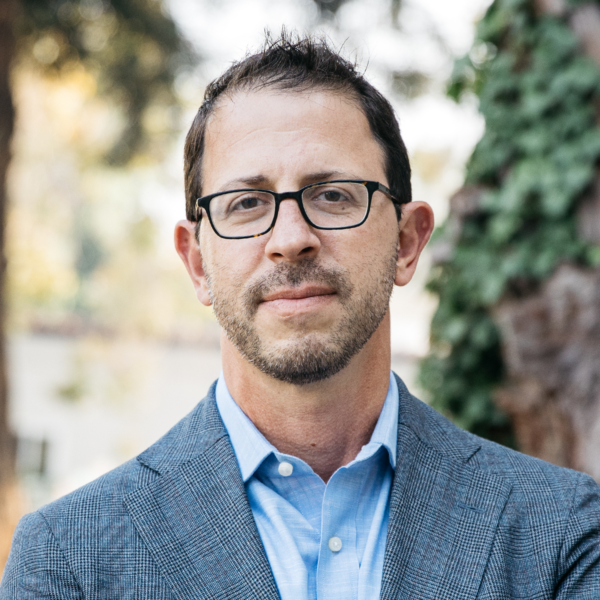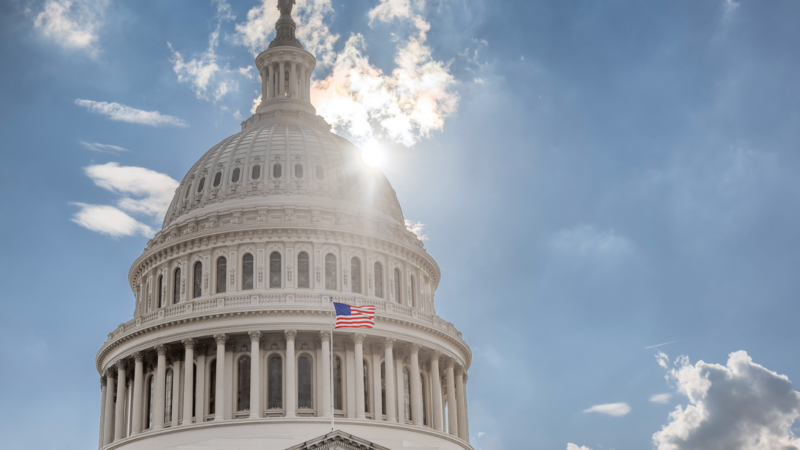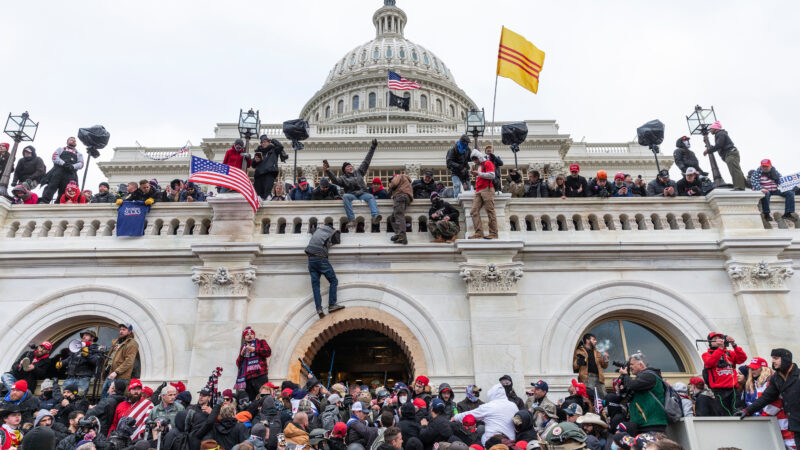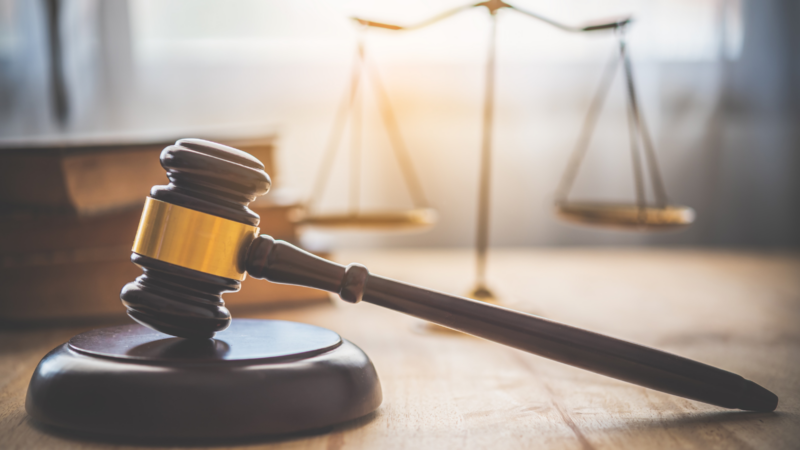Ian Bassin is co-founder and Executive Director of Protect Democracy. He previously served as Associate White House Counsel, where he counseled the President and senior White House staff on administrative and constitutional law.
Three Huge Wins for Democracy in 2022
- December 28, 2022

When we launched Protect Democracy six years ago, our top priority was to prevent the subversion of democracy and the rule of law, including by the autocrat who’d just assumed the most powerful office in the land. In a potential worst case scenario, that included preventing him from trying to stay in power past the end of his term illegitimately.
We succeeded on that front. Time Magazine credited us as being a key part of the campaign that helped save the 2020 election. And the many additional ways we helped our institutions protect democracy are summarized here.
On Democracy and Authoritarianism: The Present State of American Affairs Read our assessment of what we’ve built since our founding in 2016 On Democracy and Authoritarianism: The Present State of American Affairs
But we always knew the problems facing our democracy went far beyond one man. And so for the past two years, after the autocrat was voted out of office, we have prioritized:
- Making sure the 2024 election cannot be subverted; and
- Strengthening our system’s guardrails to withstand a potential Trump 2.0 (either the man himself or a similarly illiberal leader).
I’m happy to report that we’ve seen significant successes this year on those goals as well:
- This past week saw the successful culmination of a two-plus year effort to reform the Electoral Count Act;
- The January 6th Committee released its final report calling for the criminal prosecution of Donald Trump and numerous associates who attempted a coup to overthrow our democracy;
- One result of that focus on national truth telling and accountability about January 6 was that it swung just enough Republican and Independent voters to reject extremist anti-democratic candidates, handing election deniers running to oversee the 2024 election in battleground states a clean sweep of defeats (polling we commissioned with Citizen Data showed that dynamic, as covered in this Sunday’s New York Times cover story).
- The Supreme Court heard arguments on the so-called “Independent State Legislature Theory” and while the final decision is not yet known, the justices seemed less inclined to back the most extreme versions of it than many of us had feared;
- There was a notable drop in post-election conspiracy theories gaining traction, an outcome that some credited to the successful efforts by us and others to use defamation law to create a deterrent against injurious disinformation; and
- A bevy of civil litigation against those who attacked our democracy has largely progressed as planned, with the important highlight being the federal court in Washington, DC ruling we could proceed in our lawsuit to put the former president on trial for the events leading up to and including January 6.
But while these threads form a protective net around our democracy when woven together, make no mistake that our democracy remains in great danger. As we explained in The Atlantic this week, “‘If we imagine’ that preventing another assault on the democratic process ‘is only about preventing the misconduct of a single person, we are probably not setting up ourselves for success.’” The Authoritarian Warning Survey places the likelihood of democratic breakdown in the United States sometime in the next four years as 19%. If we had a one in five chance of our house burning down, we’d be sure to do something about it, and so must we here.
The Authoritarian Threat Index evaluates the current level of danger to American democracy.
Experts estimate the likelihood of democratic breakdown in the United States sometime in the next four years as 19%.
The only way it can happen here, is if we think that it cannot.
For more on how* we achieved some of the key wins listed above, see more extensive explanations below. Or if reading to here is enough, remember this: democracy does not protect itself. Our system didn’t just somehow magically “work.” It worked because of what we all did together. At the end of the day, our democracy lives or dies based on the actions of those mentioned in the first three words of the Constitution: We The People.
Democracy does not protect itself. Our system didn’t just somehow magically “work.” It worked because of what we all did together. At the end of the day, our democracy lives or dies based on the actions of those mentioned in the first three words of the Constitution: We The People.”
I am unbelievably honored to be among that group with everyone on this team, a team that has said repeatedly since 2016: our democracy will not die on our watch. Indeed it won’t. And as the Brookings scholar Jonathan Rauch said recently, “For the first time since 2016, I’m allowing myself to believe that Team Democracy is playing offense.” Yup. Join us:
How We Achieved Three Key Goals in 2022
*What follows is a fairly extensive though not exhaustive recounting of how we achieved three of our top priorities for 2022. We think it’s important to provide this sort of transparent reporting of how the sausage gets made as it is important that we be held accountable and hold ourselves accountable to showing that we materially contributed to impact in the world.
This is especially important for us as an advocacy nonprofit.
It’s relatively easy to measure the success of for profit companies: it’s measured in dollars. But measuring whether a nonprofit is successful has always been much harder.
Organizations like GiveWell and Charity Navigator try to provide some assessments to help donors steer their philanthropy effectively (I’m partial to GiveWell as I think they generally do an excellent job identifying effective charitable giving options). But even they have admitted that measuring the effectiveness of advocacy nonprofits is particularly difficult.
Because of that, we try to hold ourselves accountable to predetermined goals we set at the beginning of the year. Three of our top ones from 2022, along with our results on each, are detailed here.
Reforming the Electoral Count Act1. Reforming the Electoral Count Act
In 2019, we stood up the National Task Force on Election Crises, a cross-ideological, cross-sector body of more than 50 trusted experts on election law, election administration, national security, cybersecurity, social media, emergency response, continuity of government, transfers of power, voting rights, public health, and election protection.
The concept behind the Task Force was for a cross-ideological group of experts to anticipate potential crises and craft best practice responses in advance, behind a veil of ignorance, so that if a crisis did occur, the group would have an authoritative basis from which to disseminate clear guidance and recommendations that would carry weight in the chaos, and make it more difficult for a bad actor to take advantage of the confusion.
The Task Force began extensively mapping out potential crisis scenarios in mid-2019. As part of that scenario planning, it wrote a memo outlining the steps a losing candidate might take in an effort to overturn election results. A recurring theme throughout that memo and our crisis planning more broadly was that the Electoral Count Act (ECA), which governs the process of casting and counting Electoral College votes for president and vice president, suffered from serious gaps and ambiguities that posed a danger to peaceful, orderly transitions of power.

As the 2020 election approached, the Task Force issued legal guides and held a series of 18 press briefings for 745 attendees from 171 different outlets to help the media accurately educate the public on both the relevant arcana of how election mechanics are supposed to work, as well as how to be prepared for and identify bad-faith actions. A number of those briefings and guides centered on the Electoral Count Act and the possibility that its provisions could be abused to subvert the election.
As part of that work in 2020, the Task Force began calling for a reform to the ECA. As they put it, “the statute is extraordinarily complex and has been described as ‘almost unintelligible.’ It undoubtedly needs to be revised.”
And on January 6, 2021, we saw the devastating consequences of that ambiguity as Trump and his allies exploited the law’s lack of clarity around the vice president’s role to pressure Mike Pence to try to throw out the election results as he presided over Congress’s counting of states’ electoral votes.
Thankfully, in part due to the foresight and preparations of the Task Force, along with countless other efforts by allies and Americans more broadly, we managed to survive the ECA’s shortcomings and overcome a coup attempt that relied heavily on them.
But it was a clarion warning that the ECA needed revision, and we set out to enact reform.
First, the Task Force issued a report on the 2020 election with lessons learned and recommendations for avoiding a repeat, which was covered in Vox and featured by the Washington Post Editorial Board as an example of a starting point for key election reforms that Congress and the new administration should enact. Among those recommendations, the Task Force called for reform to the ECA.
But we knew we needed to do more than just call for reforms. We needed to (1) align the advocacy and academic community on what specific reforms should look like; (2) build a broad cross-ideological coalition to push for those fixes; and (3) with humility and persistence, deploy all the tools in our toolkit to work with Congress on seeing ECA reform through to completion.
On the first point, we teamed up with our partners at Issue One and the Campaign Legal Center and worked together to align on the key elements ECA reform should include. By June 2021, we had a consensus on five crucial aspects for ECA reform:

In August, the Task Force endorsed that blueprint and issued its own paper laying out the five key changes Congress needed to make. The blueprint was covered in the press:

And when Independent Maine Senator Angus King took the lead on an ECA reform effort, we briefed his team on the key elements we’d built broad alignment around within the academic and advocacy communities.
With alignment on essential reform components and a Senate office taking the lead, the next step was to build a broad cross-ideological coalition to back these changes as we knew we would ultimately need 60 votes in the Senate, including 10 Republicans and every Democrat.
To get there, we knew it would be crucial to have validators on the left pushing Democrats to back reform, and validators on the right pushing Republicans to do the same. So we also began working with Bob Bauer and Ben Ginsberg, two of the leading election lawyers in the country who have represented Democrats and Republicans, respectively, and who agreed that our respective strategies for reform were aligned. With additional help from former Bush Administration DOJ official Jack Goldsmith, they also aligned the legal community around reform. Bauer and Goldsmith co-chaired an American Law Institute project to recommend reforms, which issued a statement of principles for reform in April 2022 which built upon the blueprint outlined by the Task Force.
And we worked with our allies in the voting rights space to push for a both/and approach that would seek to pass ECA reform in addition to much needed protections for voting rights and guards against election subversion, where we had been helping several congressional offices craft both the first ever statutory right to vote, as well as what would become Title III of the Freedom to Vote Act, which built in new protections against electoral sabotage.
By late 2021, we’d already had productive conversations with congressional offices on both sides of the aisle. By early 2022, we had provided them with draft legislative text (which now in retrospect looks awfully close to the version that ultimately passed) and laid out a strategy to pass ECA reform during the post-midterm lame duck session.
Then one of our key strategies appeared to accelerate things, as calls for reform from our allies on the right prompted first Senator Susan Collins and then several additional Republican Senators to come out openly for updating the ECA, leading to the creation of a bipartisan working group in the Senate.
Over the course of 2022, we worked with the Democratic and Republican senators in the working group to help them navigate the intricacies of updating the law, providing extensive technical assistance to members of the working group from both parties.
As Greg Sargent from the Washington Post recently noted, the Task Force and Protect Democracy’s ECA experts “wrote one of the earliest blueprints on how to reform ECA, and it helped shape a whole lot of folks’ thinking after that.”
On the outside, we supported public advocacy efforts from the left and the right. We assembled and produced resources like FAQ explainers on the ECA and its deficiencies, polling and statements demonstrating the broad public appetite for ECA reform, and press briefings and discussions with election experts. We housed these materials on our ECA website, which regularly appeared as the top Google search result for “Electoral Count Act.”

We used these and other materials to produce think pieces and drive media coverage favorably framing the need to update the ECA.

We continued to build a broad cross-ideological coalition of civil society groups and other voices — from retired military leaders to business segments to a former Senate Majority Leader — focused on publicly and privately advocating for ECA reform. And we provided additional support to others who were making the case to voters around the country, especially in states with potentially supportive Republican senators, of the need for reform. Meanwhile, a chorus of voices from academia, many organized by Professor Rick Hasen, continued to make the case in the press.
In July 2022, a bipartisan group of Senators introduced the Electoral Count Reform Act (ECRA), which effectively addressed all five of our coalition’s reform priorities — as we explained in this document that is now part of the Congressional record. In response, Protect Democracy and the Task Force applauded their efforts, and then continued our campaign: supporting Members as they engaged in productive conversations about minor technical tweaks or improvements to produce the best possible set of reforms; working with partners to ensure that hearings on ECA reform were similarly productive and focused on iterating rather than stalling or losing progress; addressing any new questions that cropped up; and, ahead of the Senate Rules Committee vote in late September, ramping up our communications efforts to ensure that the issue remained top-of-mind.
The ECRA passed out of the Senate Rules Committee on a bipartisan 14-1 vote; and a separate Electoral Count Reform bill passed the U.S. House with support from 9 Republicans. Then, in November, 6 more Senators signed on to co-sponsor the ECRA, bringing the sum of co-sponsors to 39, including 16 Republicans.
So with broad bipartisan support secured for a set of reforms that addressed each of our coalitions’ priorities, what we had to do was keep pushing Congress to act before the clock ran out. And ultimately, they did.
After two-plus years of advocating for this moment, we can say that on December 23, as part of the omnibus government funding package, a set of reforms to the Electoral Count Act were enacted into law.
Ensuring a National Truth Telling about January 6th2. Ensuring a National Truth Telling about January 6th
Reforming the ECA is one part of preventing a future authoritarian attack on our democracy from succeeding – it’s rooted in a strategy of strengthening legal checks against a future coup. Along with ECA reform, another key element of strengthening legal checks has been ensuring the rejection of the so-called Independent State Legislature Theory at the Supreme Court. We’ve invested considerably there as well (working with our partners at The Brennan Center to help build a broad coalition that explained why the theory is both wrong and dangerous), but won’t know the result until next June when the Supreme Court decides Moore v. Harper.
But beyond strengthening legal checks, we’ve long known that another key strategy to protecting our democracy against future assaults is ensuring accountability for past ones.
In the Fall of 2020, we conducted a series of interviews with historians and experts on international experience to identify what lessons exist for how to prevent a recurrence of authoritarian abuses. The result of the research was our report, Towards Non-Recurrence: Accountability Options for Trump-era Transgressions, which we released in December of 2020. Upon its release, it was met with supportive press coverage in major outlets, such as this editorial from The New York Times based in part on our report and endorsing its conclusions.
Towards Non-Recurrence: Accountability Options for Trump-era Transgressions Read our analytical guide to accountability and non-recurrence in the Trump-era. Towards Non-Recurrence: Accountability Options for Trump-era Transgressions
The report identified the importance of using accountability as a deterrent to future abuses. It explained that strong accountability regimes tie together a number of elements, from criminal prosecutions, to civil liability, to regulatory reforms, to national truth telling. It was this last one, the importance of establishing a shared national narrative of what actually happened that led us to push Speaker Pelosi to prioritize the creation of a January 6 Commission.
Our preference was for an independent bipartisan commission modeled on the 9/11 Commission. Speaker Pelosi agreed and tasked Rep. Bennie Thompson with designing an approach. Initially, Kevin McCarthy agreed as well and tasked Rep. John Katko to work with Thompson on a bipartisan compromise approach. We met with Congressional offices throughout the negotiation process, providing technical assistance and helping to build a bipartisan coalition of civil society organizations. We also organized former high level officials such as former Defense Secretaries, Homeland Security Secretaries, a former Solicitor General, former CIA and NSA directors, and former Joint Chiefs of Staff, among over a hundred others, to lobby both publicly and privately for the creation of such a commission.
And we almost succeeded. The Democrats agreed to all of McCarthy and Katko’s requests and a bipartisan deal was agreed to. But once it appeared that a strong bipartisan independent commission would be created, McCarthy caved to Trump’s bullying and changed his tune and Senate Republicans filibustered the creation of the Commission.
With a now robust cross-ideological coalition strongly invested in creating a commission, we pressed Speaker Pelosi to proceed anyway, which was also her inclination. She set up the bipartisan Select Committee to Investigate the January 6 Attack on the U.S Capitol.
And our coalition set to work supporting the Committee.
First, we engaged at relevant times with Executive Branch and Congressional staff on key questions around the scope of the Committee’s mandate and its ability to access Trump Administration documents it needed for its investigation.
When the Committee faced motions to quash its subpoenas in court, we organized a bipartisan group of former lawmakers to file legal briefs in support of the Committee’s legitimate demands for information that were cited in court decisions siding with us and the Committee.
When Trump’s allies took to the press to argue their case against the investigation, we organized former high level Department of Justice officials from Republican administrations to respond point by point to the Trump team’s attacks.

And once the hearings got underway, we undertook a massive effort to make sure the Committee’s findings reached Americans who needed to learn the truth.
With our partners at Citizen Data, we conducted initial research to identify the most important Americans to reach: those who were uncertain about what happened on January 6 and could still be persuaded to hear and accept the truth. We then assembled a strategic communications plan to make sure the Committee’s work reached this conflicted middle.
This involved speaking to these Americans directly through the press, and finding trusted messengers to summarize and relay the inquiry’s findings. We held press briefings for state and national reporters featuring subject matter experts from Protect Democracy alongside outside experts, predominantly Republican former senior government officials, including a former Defense Secretary, former Solicitor General, former Acting Attorney General, former Vice Chair of the Joint Chiefs, and more. Over the course of the summer hearings, we booked trusted voices from the national security, military, and law enforcement communities, as well as former members of Congress, on national TV, from Fox News to CNN, and in local media around the country, from Milwaukee to Tucson, to discuss the gravity of the hearings and their findings.
We also launched a paid media campaign featuring former Trump Administration officials to emphasize to almost 100 million listeners the importance of accountability for political violence. We organized and amplified several public statements from influential national security and business leaders. And we developed extensive pre-hearing media guides and post-hearing primers with Just Security to aid national and state media in effectively covering the Committee’s key facts and findings.
In the end, it all mattered. Follow-up polling we did in partnership with Citizen Data, which was subsequently covered by The New York Times, shows how much of a difference it all made.
First of all, engagement with the January 6 Committee’s congressional hearings was exceptional: 57% of voters across the five key states we polled (Arizona, Georgia, Michigan, Pennsylvania, and Wisconsin) reported exposure to the hearings. Congressional hearings are not usually well known for drawing a crowd, but the summer hearings each averaged 13.1 million viewers, and by our count, the Select Committee landed on the front page of USA Today — the country’s largest paper by circulation — nearly 40% of the time during those hearings. Our polling indicates that exposure to the work of the January 6 Select Committee was associated with a 27% increase in concern for democracy. While we can’t claim this correlation is entirely causal, 45.5% of respondents from our target audience said the hearings impacted their vote in the general election.

While the midterm elections may have come and gone, the concern for our democracy that they highlighted has not. The truth-telling accomplished through the Select Committee hearings has already influenced the way voters think when they step up to the ballot box, and appears to have materially contributed to preventing election deniers from winning any office in battleground states that would allow them to oversee the 2024 election – delivering on the initial strategy that accountability and truth telling would be a key ingredient in preventing future abuses.
What is more, the Select Committee has steadily built the groundwork for legal accountability, culminating in its referral of criminal charges against the former President. As our accountability report noted, criminal prosecution is another key leg of the accountability stool and we have made the case: (a) that there is a well-founded legal case for prosecuting Trump; (b) that speculative fears that prosecuting a former president could start a retaliatory death spiral are contradicted by the experiences of our laboratories of democracy, the states; (c) that Trump’s announced candidacy should not stand in the way of a prosecution; and (d) that it would be beyond the proper role of the Justice Department to decline to indict based on political considerations about what is in the overall national interest, as the Founders reserved the power to make a decision like that to the president and the president alone through the pardon power.
Persistent arguments like these from both Protect Democracy and our coalition allies, combined with the Select Committee’s work, has raised the likelihood that the Justice Department will decide to prosecute Trump or his closest lieutenants if the normal factual, legal, and prudential bars are met, as they appear to be here.
As Politico notes, “through its body of investigative work, through public and political pressure, the panel may have effectively compelled prosecutors to investigate Trump despite their onetime inclination to steer clear of the volatile former president. Now we are seeing the public hand-off of an extraordinary effort that, at least if the members of the Jan. 6 committee have their way, could end up with Trump behind bars.”
Fostering a Fact- and Truth-Based Information Ecosystem3. Fostering the Kind of Fact- and Truth-Based Information Ecosystem Necessary for Democracy
Finally, in addition to strengthening legal guardrails and delivering accountability for anti-democratic attacks as a way of deterring future ones, a third major objective for us these past two years has been to protect informed, fact-based debate.
We did this predominantly in three ways: First, to deter and mitigate the spread of disinformation, our Law for Truth project brought a series of defamation lawsuits against some of the foremost purveyors of election denying conspiracy theories. Second, to protect the open flow of accurate information, we successfully sued and blocked Florida from implementing Gov. Ron DeSantis’ so-called “Stop Woke Act,” which sought to enact speech codes limiting how private businesses and schools could talk truthfully about race and gender. Third, to help reporters and editors navigate how to cover the democracy crisis without resorting to reality-blind neutrality and specious bothsidesism, we produced a media primer on the global democracy crisis that offered guidance for the Fourth Estate.
Launched in late 2021, our “Law for Truth” project has now filed four major cases:
- In August 2021, we sued Project Veritas on behalf of a postmaster in Erie, Pennsylvania who we allege Project Veritas defamed by spreading false conspiracy theories claiming that he corrupted ballots during the 2020 election;
- In December 2021, we sued the Gateway Pundit on behalf of Georgia election workers Shaye Moss and Ruby Freeman for injuries they suffered as a result of the Gateway Pundit spreading false conspiracy theories about our clients;
- Later that same month, we filed a second case on behalf of Moss and Freeman, this time against One America News Network, several of its executives, and Rudy Giuliani for spreading similarly false conspiracy theories about our clients; and finally
- In November 2022, we sued the makers of the conspiracy film 2000 Mules for falsely accusing our client of committing criminal acts in what the film claimed was evidence of a massive plot that “stole” the 2020 election.
And as the legal site Law360 recently reported, heavily citing our work, “Disinformation Promoters Got Walloped In Court In 2022.”
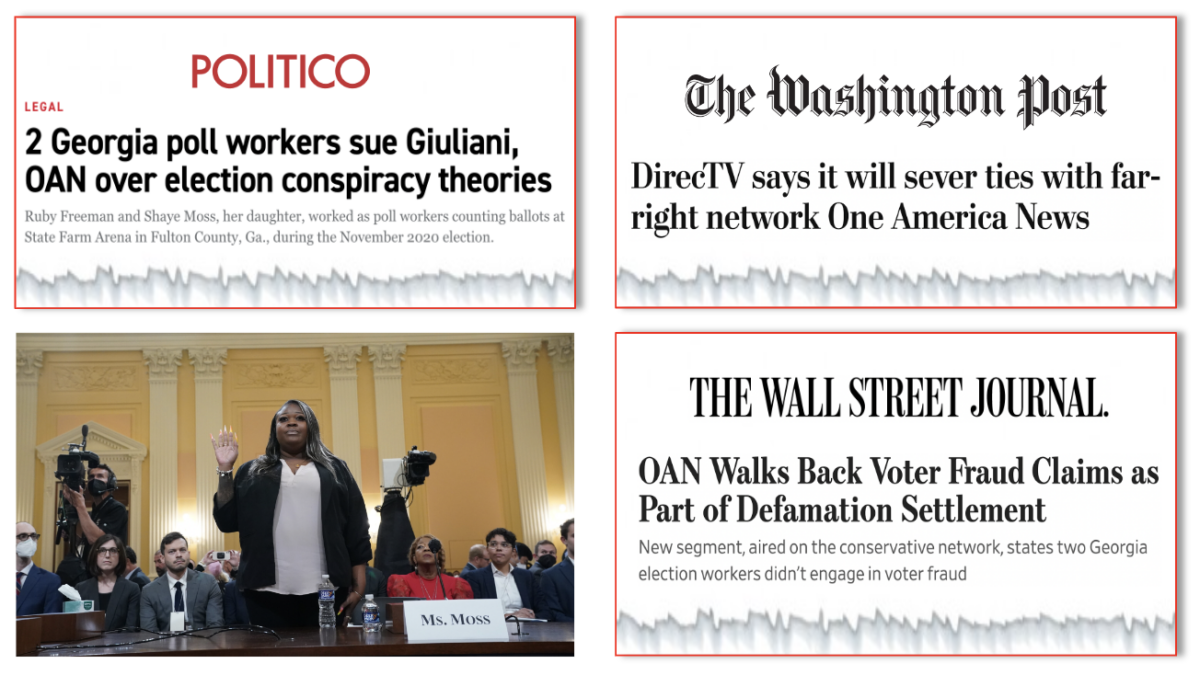
To date, we have prevailed against every attempt by defendants to throw out the suits we’ve filed. All of these cases have received significant news coverage (and Ms. Moss received the John F. Kennedy Profile in Courage Award and testified to the Jan. 6 Select Committee on behalf of election workers harmed as a result of the Big Lie), and The New York Times, NPR, Persuasion, Rolling Stone, and The Markup have covered the broader Law for Truth effort.
But beyond just winning in court, the collective strategy is also working. Our lawsuit against OANN appears to have been one of the key dominoes that led to DirectTV dropping OANN from its channel lineup. Verizon and Frontier, two of OANN’s other biggest distributors followed suit, resulting in OANN losing all of its major carriers and access to a quarter of American television households. OANN also subsequently walked back its claims that there was widespread election fraud in Georgia in 2020.
And we saw the deterrent impact of our lawsuits — and others ongoing in a similar spirit — during the midterms, where there were notably fewer conspiracies floated after the election than in 2020 and the ones that were, by people like Kari Lake, found little traction for amplification in the media. The deterrent effect was intentional. Prior to the election, as a shot across the bow to those tempted to spread conspiracy theories, Amanda Carpenter penned a piece in The Bulwark titled: “Conspiracists Beware: Post-Election Lies Could Land You in Legal Hot Water.” As that piece describes:
in the wake of Protect Democracy’s lawsuit and other advocacy campaigns against OAN, DirecTV, Verizon, and Frontier have dropped OAN from its distribution channels, severely limiting the reach of its broadcast in the future… In the meantime, Protect Democracy’s other lawsuits are moving forward… Let Protect Democracy’s defamation cases serve as a warning that consequences, whatever they may be, could be coming.”
Amanda Carpenter, The Bulwark
And as David French wrote after the midterms in The Atlantic, also citing our work, “defamation litigation helped save democracy… institutions now know that defamatory claims have consequences—especially when defamation leads to threats or harassment against innocent parties.”
Meanwhile, our efforts to protect the flow of accurate information succeeded as well. After representing several Florida businesses in a lawsuit against Gov. DeSantis’ race and gender speech codes, the federal court in Florida issued an injunction blocking enforcement of the law. And shortly after that win in our case, our allies at the ACLU and FIRE won subsequent cases based on the precedent we set to block application of the same law in universities and K-12 schools.
Finally, our Media Primer on “The Authoritarian Playbook” was covered in The New York Times, Washington Post, CNN and numerous other outlets, and generated requests from multiple additional media outlets and press associations to brief their reporters, editors, and members on the contents of the guide. Along with coverage at the national level, the guide also prompted reporting at the local level focused on contextualizing the myriad threats to democracy. We have not yet run a comprehensive analysis of the guide’s impact on coverage, but anecdotally we have received word from reporters and editors that it has been impactful in their internal decision making, and we’ve seen what appears to be shifts in coverage that tracks the thrust of the primer.
* * *
These were not the only successes in 2022, but together they form a powerful bulwark in defense of our democracy. In addition to them, we also saw progress in our work to legalize fusion voting, in our work to protect the right to vote, in our work to pass provisions of the Protecting Our Democracy Act, and more.
We also had some failures. We came up short at the trial court level in our righteous lawsuit on behalf of Lt. Col. Alexander Vindman against those who we alleged unlawfully conspired to intimidate him from testifying in the first Trump impeachment and then retaliated against him for doing so. And we came up short last week in getting reforms to the National Emergencies Act included in the end of year omnibus spending bill.
Overall, though, it was a remarkably successful year for democracy and for Protect Democracy, that wouldn’t have been possible without all of us.
But the forces that have put democracies in danger and felled several liberal democracies in the 21st Century have not gone away. In the new year, we’ll see a major election in Turkey that will tell us whether that democracy can be saved, we’ll see the movements for greater freedom in Iran and China either make further gains or be crushed by those authoritarian regimes, and we’ll see whether the brave people of Ukraine can continue to push Russia’s authoritarian leader back from whence he came.
And of course, here in the United States, we’ll see a man who has already launched one violent insurrection to try to overturn our democracy campaign to be returned to power, and a field of other candidates likely try to defeat him by copying some of his worst and most dangerous tendencies.
So cherish our wins we must, but let down our guard we cannot. For the sake of handing a stronger democracy off to the next generation, we still have work to do.
Related Content
It can happen here.
We can stop it.
Defeating authoritarianism is going to take all of us. Everyone and every institution has a role to play. Together, we can protect democracy.
Donate
Sign Up for Updates Sign Up for Updates
Explore Careers Explore Careers
How to Protect Democracy How to Protect Democracy
